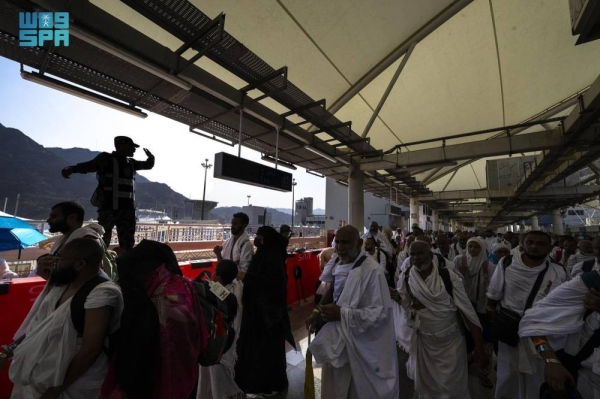The Ministry of Interior recently held a press conference to update the public on the progress of the 1445 AH/2024 AD Hajj season. The transportation of pilgrims within the holy sites has been successfully completed, with pilgrims returning to Mina this morning. Security spokesman, Colonel Talal Al-Shalhoub, highlighted that pilgrims have safely performed key rituals like the Tawaf Al-Ifadah and stoning of Jamrat Al-Aqaba. The security forces are dedicated to ensuring the safety and security of pilgrims during their stay in Mina, as well as their rituals at the Grand Mosque and the Jamarat Bridge. Pilgrims are reminded to follow instructions for their movements during the Days of Tashreeq and to maintain calmness and order during their movement.
The efforts of the security sectors have been commendable, with the Unified Security Operations Center (911) in the Makkah region receiving nearly 79,000 calls on the tenth day of Dhul-Hijjah. These calls included security reports, service inquiries, and general questions, all of which were promptly addressed. Ayed Al-Ghuwaynem, Undersecretary of the Ministry of Hajj and Umrah for Hajj Affairs, reported that around 800,000 pilgrims arrived in Mina before dawn on Sunday, with transportation efforts continuing to accommodate around 1,350,000 pilgrims. Operations related to sacrificial offerings have been organized according to high environmental standards, using a modern system for managing animal waste.
Regarding transportation services, Saleh Al-Zuwaid, Spokesman of the Transport and Logistic Services System, confirmed that the operational plans for the Mashaer train have been progressing smoothly. As part of the Mashaer train operations, over 305,000 pilgrims were transported from Arafat to Muzdalifah, and over 360,000 pilgrims were transported from Muzdalifah to Mina. The Haramain High Speed Railway has also continued its operations as planned, with over 3,800 trips throughout the entire Hajj season, providing over 1.6 million seats. The aviation sector is gearing up for the second phase of the operational plan to facilitate the departure of pilgrims through 6 designated domestic and international airports.
The health and epidemiological situation during the current Hajj season has been described as reassuring by Mohammed Al-Abdulaali, Spokesman for the Saudi Health Ministry. While no significant diseases affecting public health have been recorded among pilgrims, there have been 2,764 cases of heat stress and sunstroke due to high temperatures and exposure to the sun during peak intensity hours. Al-Abdulaali stressed the importance of using umbrellas and drinking water regularly to prevent such cases and assured that the Ministry of Health is closely monitoring the affected individuals. The success of the first phase of the operational plan for this year’s Hajj has paved the way for the smooth facilitation of pilgrims’ departures through various airports, while plans for expanding initiatives like “Hajj without Bag” aim to enhance the overall pilgrimage experience for all participants.











